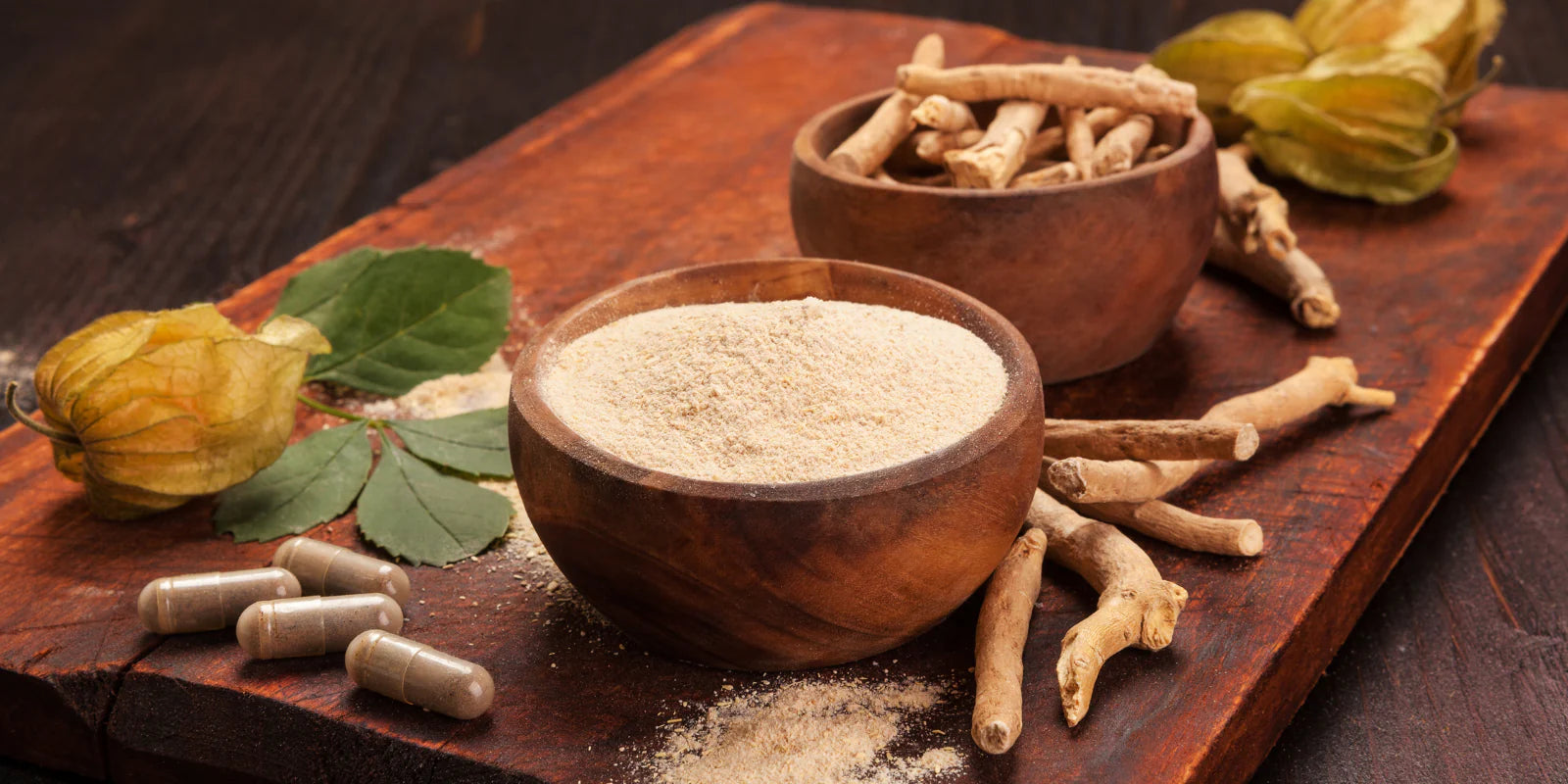
THE COMPREHENSIVE GUIDE TO THE CORRECT INTAKE OF ASHWAGANDHA
Ashwagandha, also known as sleep berry or Indian ginseng, is an important ingredient in Ayurvedic medicine. It is an adaptogenic plant, which means it can help the body adapt better to stress. But how much ashwagandha should you take a day, when is the right time and what are the benefits of taking it? This article provides a comprehensive overview of ashwagandha and its uses.

How Much Ashwagandha Should I Take Daily?
The dosage depends on your specific needs and the form of the extract. For general wellness, a daily dose of 300-500 mg of standardised ashwagandha extract is often recommended. For targeted purposes, such as stress relief or improved sleep, the dosage can be increased, but it’s important not to exceed 1250 mg per day. Beginners should start with a lower dose and gradually increase it to find their optimal level.

When Should I Take Ashwagandha?
There’s flexibility in timing. If you’re seeking an energy boost or stress reduction during the day, taking ashwagandha in the morning is ideal. However, if better sleep quality is your goal, it’s often more effective to take it in the evening due to its calming effects. Regular use over several weeks is key to experiencing its full benefits.

What Are the Benefits of Ashwagandha?
Ashwagandha offers numerous health benefits. It can help reduce stress and anxiety, improve sleep quality, enhance physical performance and endurance, and boost the immune system. Additionally, it has anti-inflammatory properties and may support cognitive health, including improved memory. It’s important to note that results vary, and consistent use is essential for achieving noticeable effects.

How Can I Take Ashwagandha?
Ashwagandha is available in various forms, including our Keepin’ it Calm gummies, capsules, powders, teas, and tinctures. Gummies and capsules are particularly convenient, while powders can be mixed into smoothies, yoghurts, or warm drinks. Tinctures offer a quick alternative by placing drops directly under the tongue. Taking ashwagandha with food is recommended to minimise any potential digestive discomfort.
Conclusion
Ashwagandha’s benefits make it a versatile addition to a wellness routine, whether you’re looking to reduce stress, sleep better, or simply support overall health. However, as with any supplement, it’s crucial to consult your GP before starting, especially if you’re pregnant, nursing, taking medications, or managing a health condition.
Make the most of this incredible herb and embrace its ability to support balance and vitality in your daily life.
our bears with
Ashwagandha
Ashwagandha

NUTRITIONAL SCIENTIST
Nassim Jamalzadeh
Nutritionist Nassim completed her Master's degree in Nutrition & Biomedicine at the Technical University of Munich and is an expert in nutritional medicine and food law.



